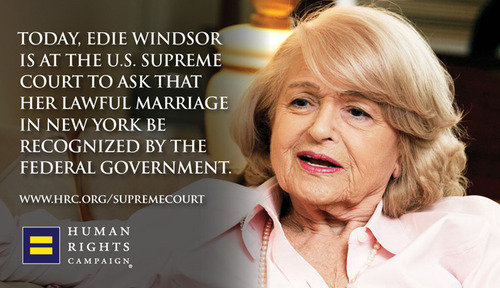by Caitlin Copple
Tonight, Missoula’s City Council will vote to establish a domestic partnership registry open to same-sex couples across the Treasure State. But let’s be honest, domestic partnership registry doesn’t sound very sexy. It doesn’t carry as much weight as full marriage equality, or even civil unions at the state level. So why even do it?
Let me be clear: No one should settle for mere city-level domestic partnership recognition. I’m certainly not going to. That’s why I hope you will join me in continuing to support these great organizations working on non-discrimination ordinances in Montana cities (www.mhrn.org, www.forwardmontana.org, http://www.fairisfairmontana.org) as well as statewide relationship recognition through the newly refiled Donaldson v. Montana case (www.aclumontana.org).
So if full marriage equality and non-discrimination is what LGBT Montanans and our allies really want, why bother with this little domestic partnership registry in Missoula? Does it even matter? Yep, and here’s why:
- It’s called an LGBT movement for a reason. We can and should be moving forward at every level of our democracy until LGBT Montanans are treated equally under the law and our families are valued and respected in our culture – From Missoula to Miles City. Incremental and inadequate as a registry may seem, it is an important step on the path to full equality.
- It sends a message to the State of Montana that cities will do everything they can for LGBT residents despite discriminatory laws. Municipal domestic partnership registries are proven to pave the way for more meaningful statewide change. We’ve seen this in the 58 other cities across 23 states, many which lacked any relationship recognition prior to the establishment of a local registry. You know how Minnesota defeated a ballot initiative to ban same-sex marriage last fall, and how their legislature just passed marriage equality this session? Well, before any of that happened, Rochester and Minneapolis were leading the way by recognizing all families at the city level. This is not a coincidence.
- Municipal domestic partnership registries help same-sex partners get health insurance coverage, as well as better treatment from first responders and hospitals. It’s not a replacement for statewide mandates or getting an advanced medical directive (Click here to make sure you have all your bases covered: http://www.hrc.org/resources/entry/protecting-your-visitation-decision-making-rights). However, Cathryn Oakley, director of the Municipal Equality Index project at HRC (her aunt lives in Billings – love that!) has provided me with countless examples of how this is happening in cities with registries across the country. The wallet card offers proof for employers that want to do the right thing despite bad state law, and something that emergency and hospital personnel can point to in your time of need.
Here’s a link to the text of the Missoula resolution that will govern how the registry operates: http://missoula.siretechnologies.com/sirepub/cache/2/najfwbk13nw4n5achjhsqw54/7845907152013011316448.PDF. It’s open to all Montana couples. Let the council know you support this effort by emailing us at council@ci.missoula.mt.us.
Remember, this registry is completely voluntary, and it is public information under state law, so if it’s not for you, don’t sign up. Coming out is always a risk, and as LGBT people, we make the decision every day about how out we want to be at work, at school, to our families and our faith communities. This is one more way that couples who want to can come out as domestic partners, and get at least some of the recognition and dignity they deserve, at least at the city level. It’s not perfect, but it’s a start. Together, by advocating at every level of our democracy, we can bring equality to all Montanans and our families.
Related articles
- Gay rights advocates look to city-level changes in Montana (ravallirepublic.com)
- Missoula considers registry that would help same-sex partners (billingsgazette.com)








